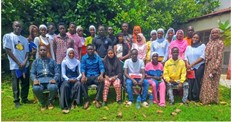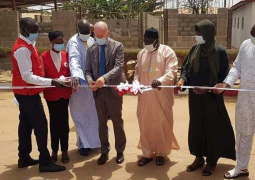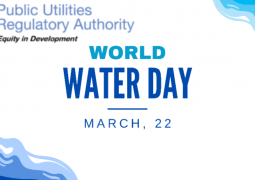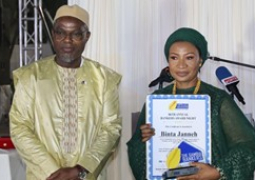
The initiative, supported by the United Nations Peacebuilding Fund through the Youth Promotion Initiative (YPI), aimed to strengthen the capacity of young community leaders to integrate HRBA principles into programme and project implementation.
The training brought together 25 youth participants from diverse backgrounds, equipping them with practical tools to promote justice, equality, and accountability within their communities.
Binta Fatajo, one of the participants, described the training as “eye-opening and deeply inspiring.”
“The training helped me better understand the importance of placing human rights at the centre of development efforts, especially in youth and community engagement,” she said. “I particularly appreciated the open dialogue, which allowed us to speak candidly about challenges such as inequality, lack of participation, and weak accountability.”
She added that interactive methods such as role plays, group discussions, and real-life case studies helped bridge the gap between theory and the lived realities of rural and vulnerable communities.
Speaking on behalf of ActionAid, Saikou Darboe, Local Rights Programme Manager, underscored the importance of human-centred development. “This HRBA training promotes a development model where people actively participate and lead in shaping their own progress,” Darboe stated.
“Participants were encouraged to challenge power structures and demand accountability to ensure transparent institutions. Feminist leadership was a central theme, emphasising equality and inclusion.”
Youth leader Hayib Gaye echoed the training’s impact, noting its role in empowering participants to advocate for transparency and justice.
“This initiative has helped us understand our rights, how to implement them, and how to hold ourselves accountable to the communities we represent,” Gaye said. “It also highlighted how dynamic power is, and how, if left unchecked, it can lead to abuse and loss of trust.”
Cherno Omar Bah, Coordinator of Kerr Cherno Ecozone, emphasised the transformative nature of the programme for grassroots leadership.
“We have equipped 25 young people with the knowledge and confidence to champion human rights in their communities,” Bah said. “This is not just about capacity building, it’s about empowering youth and persons with disabilities to take their rightful place in decision-making structures.”
He added that the sessions were grounded in practical discussions, covering HRBA, governance, safeguarding, and feminist principles.
“These were not theoretical exercises. They were powerful conversations that will inspire participants to become advocates for justice and equality in their communities.”
Bah concluded by highlighting the shared responsibility to drive meaningful change.
“This successful training reflects our collective commitment to ensuring that young people and marginalised groups are not merely beneficiaries, but active drivers of human rights and good governance.”
The training ultimately strengthened advocacy skills, deepened participants’ understanding of rights and responsibilities, and inspired them to become stronger voices for children, women, men, and youth across The Gambia.
Read Other Articles In National News




